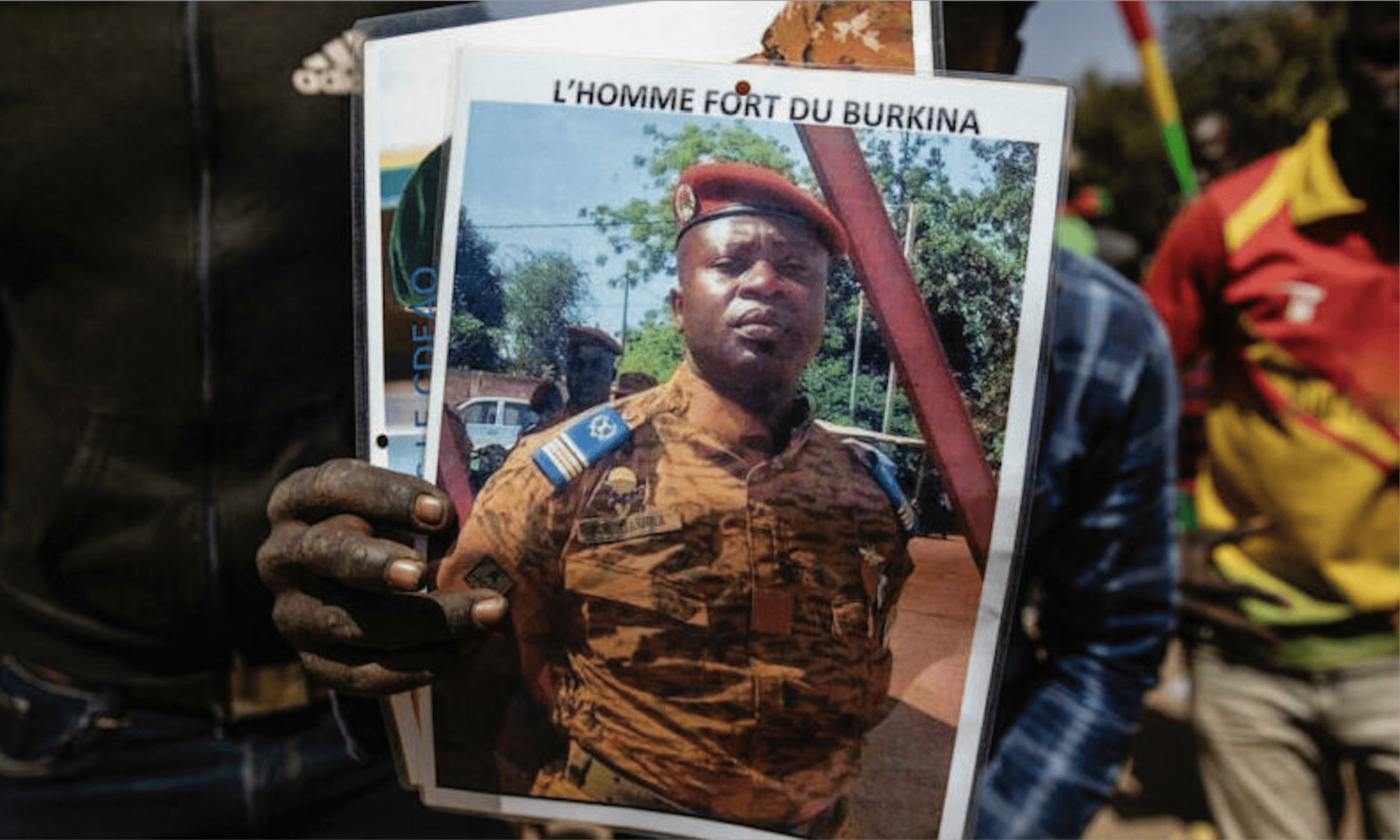
This movement, which brings together all components of the Defense and Security Forces, has decided to put an end to the rule of Roch Marc Christian Kaboré on this, the 24th of January 2022. A decision made solely to put our country back on the right track, and to bring together our forces to fight for the territorial integrity of our country, the recovery of our country and the sovereignty of our country.
So spoke a young officer on state television a few days ago, led by forty-one year old lieutenant-colonel Paul-Henri Sandaogo Damiba. It marked the dissolution of the government and parliament of Burkina Faso and the suspension of the country’s constitution.
Coming to power in 2015 during an election that ended a thirty-year long dictatorship, ousted President Kaboré is said to be safe at an as yet undisclosed location inside Burkina Faso. His seven-year long tenure was marred by Islamist militant violence, the recent intensification of which is credited with his lack of popularity, not only among the military but also the general population, with supporters for the coup taking to the streets of the nation’s capital yesterday. Burkina Faso is not alone in suffering from violence and political upheaval. Mali recently underwent its own coup in May of 2021, as did Guinea in September.
Lieutenant-colonel Damiba’s career suggests that his leading of the coup is directly tied to dissatisfaction over how the government was handling the country’s insecurity. Last December, Damiba was made commander of the third Burkinabe military district, charged with maintaining the security of the capital, Ouagadougou. With a background partly in Criminology, holding a Master’s degree from the Parisian Conservatoire national des arts et métiers, he recently published a book concerning how to fight back against Islamist terror, titled West African Armies and Terrorism: Uncertain Responses, in June 2021. Whether the new military leadership will represent a return to pre-Kaboré state of affairs or something new for Burkinabe politics remains to be seen. For now, whereas Mali has been heavily sanctioned by West African states, the Economic Community of West African States (ECOWAS) is now negotiating with the new military leadership.
